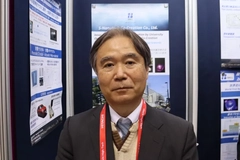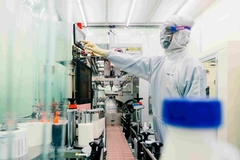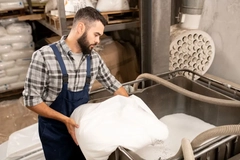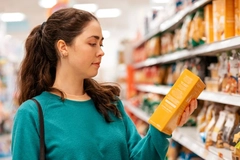Smart bioplastic: Scientists create compostable plastic films from food waste sugars
Key takeaways
- Australian scientists have transformed food waste sugars into compostable plastic films, offering sustainable alternatives to petroleum-based packaging.
- The research demonstrates how PHA biopolymers can be used to create smart bioplastic packaging and medical applications.
- The team is working with industry partners to develop viable, biodegradable packaging solutions, highlighting the potential to replace plastics in various applications.
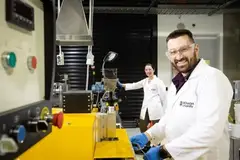
Scientists from Monash University, Australia, have developed a method to turn food waste sugars into natural plastic films that could replace petroleum-based packaging, offering compostable alternatives to plastics for food and agricultural films like silage wrap.
The research, published in Microbial Cell Factories, details the potential of a new type of biodegradable plastic by converting food waste sugars into polyhydroxyalkanoates (PHA) biopolymers. The team aims to create smarter bioplastics for packaging and medical applications.
“The advantage is tunability: by blending polymers from different bacteria, we can adjust the film’s strength and melting point for specific applications while keeping them fully compostable. Further fine-tuning of film barrier properties will bring these materials even closer to conventional petroleum-based film performance.”
Smarter bioplastics
The scientists provide a framework for designing bioplastics for temperature-sensitive packaging, medical films, and other products.
The research teams said that they have fed two soil-dwelling bacteria — Cupriavidus necator and Pseudomonas putida — “a carefully balanced ‘diet’ of sugars with the right blend of salts, nutrients and trace elements.”
When the microbes fattened up, they started stockpiling natural plastic inside their cells. The researchers would then “milk” these plastics out using solvents, cast them into ultrathin films about 20 micrometers thick, and test their stretchiness, strength, and melting behavior.
“This demonstrates how food waste can be transformed into sustainable, compostable ultrathin films with tunable properties. The versatility of PHAs means we can reimagine materials we rely on every day without the environmental cost of conventional plastics,” says Attenborough.
“By tailoring these natural plastics for different uses, we’re opening the door to sustainable alternatives in packaging, especially where they can be composted along with food or agricultural waste.”
Scaling the process
The study builds on earlier work, which demonstrated the potential of these materials as sustainable drug delivery systems.
“The biggest challenges now are cost efficiency, scaling, and consistency. Fossil-based plastics still benefit from decades of industrial optimization, while bioplastics need dedicated biorefineries and steady waste inputs,” Attenborough shares.
“Food waste isn’t uniform, as every batch is different, but with smarter fermentation and circular supply chains, we can close that gap. A great example of this progress is Biomer in Germany, which successfully scaled up PHA bioplastic production in Europe.”
The researchers are joining forces with industry partners, including Enzide and Great Wrap, through the Australian Research Council (ARC) Research Hub for Carbon Utilisation and Recycling and the ARC Research Hub for Value-Added Processing to develop biodegradable packaging and medical solutions with potential commercial applications.

